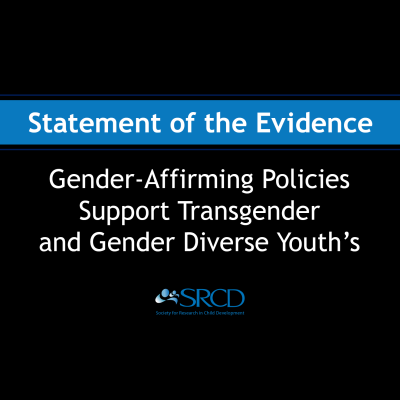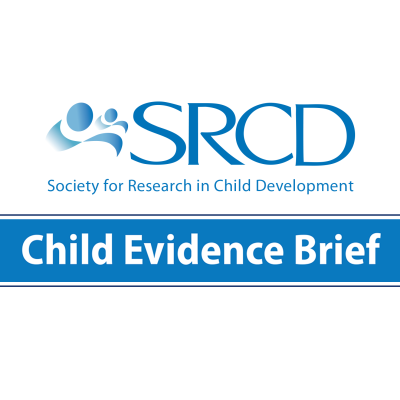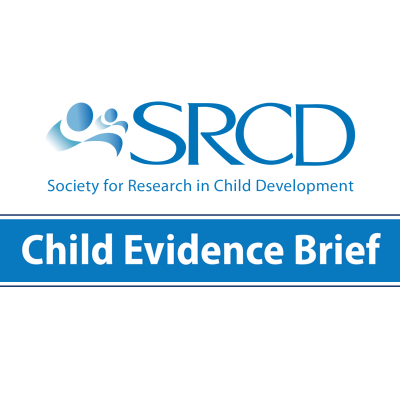New Approaches to Social and Emotional Learning in Schools
Social Policy Report Brief, Volume 26, Issue 4
Why Does This Matter?
Children with strong social and emotional learning (SEL) skills do better in school, have better relationships with peers and adults, are better adjusted emotionally, and have better mental health. Yet many children enter school without the SEL skills needed to succeed. Schools are important for developing skills such as managing negative emotions, being calm and focused, following directions, and navigating relationships. Research suggests that schools should integrate SEL skills into daily work with students and daily school routines, both inside and outside of the classroom.
SEL skills are related to short- and long-term outcomes including academic achievement, behavioral adjustment, and emotional health and well-being.
Policy Implications
Schools should integrate the teaching and reinforcement of SEL skills into daily interactions and practices. Integration of SEL approaches into daily routines should serve as a foundation for further schoolwide evidence-based programs or programs targeted to students experiencing difficulties. Such integration need not need be timeor resource-intensive.
Policymakers and educational leaders should:
- Develop and implement state and local standards focused on SEL;
- Provide training and ongoing support to administrators, teachers, and staff, both in SEL approaches integrated into daily routines and on the implementation of evidence-based programs;
- Develop valid and reliable measures of SEL practices and skills to articulate clear expectations and benchmarks;
- Systematically monitor implementation of SEL programs;
- Include SEL in Title II of the Elementary and Secondary Education Act, which is dedicated to teacher training, and other federal programs, such as Title I, Promise Neighborhoods, and the Supportive School Discipline Initiative;
- Embed SEL into larger education reform efforts and make clear the links with academic achievement (e.g. indicate the connections between specific SEL skills and elements of the Common Core Standards); and
- Provide adequate and flexible funding for SEL approaches and programs that accommodate schools’ individual needs.
What the Research Says
- Well-designed and implemented SEL programs are associated with positive—though modest—social, emotional, behavioral, and academic outcomes for children and adolescents.
- Research suggests that four principles of SEL development can strengthen school-based approaches:
- Continuity and consistency matter: Early childhood and elementary strategies should lay the groundwork for later interventions, and approaches should be carried out across school contexts, not just classrooms;
- Social, emotional, and academic skills are interdependent: It is possible to embed SEL skills into academic lessons;
- SEL skills develop in social contexts: Positive relationships with peers and teachers help children develop self- regulation; and
- Classrooms and schools operate as systems: SEL efforts affect the broader school context by influencing school culture and climate.
Facts at a Glance
- SEL refers to a set of skills that individuals need to succeed in schooling, the workplace, relationships, and citizenship.
- SEL includes: 1) students’ understanding and appropriate expression of emotion, 2) social and interpersonal skills such as interacting positively with adults and peers, and navigating social situations, and 3) the ability to control and direct attention and inhibit inappropriate responses.
- Despite a narrowing of academic curricula following the passage of the No Child Left Behind Act, the adoption of SEL programs and approaches in schools and of SEL standards in states has grown over the last decade. This growth is driven in part by public attention to issues of school violence, bullying, and harassment.
- Most SEL programs and approaches take place at the elementary school level, with fewer programs available for middle schools and very limited programming in high schools. In addition, early childhood programs often provide a strong focus on social and emotional development.
This brief summarizes a longer Social Policy Report, "Social and Emotional Learning in Schools: From Programs to Strategies," by Stephanie M. Jones, Marie and Max Kargman Associate Professor in Human Development and Urban Education, and b, Project Manager, both of the Harvard Graduate School of Education.


